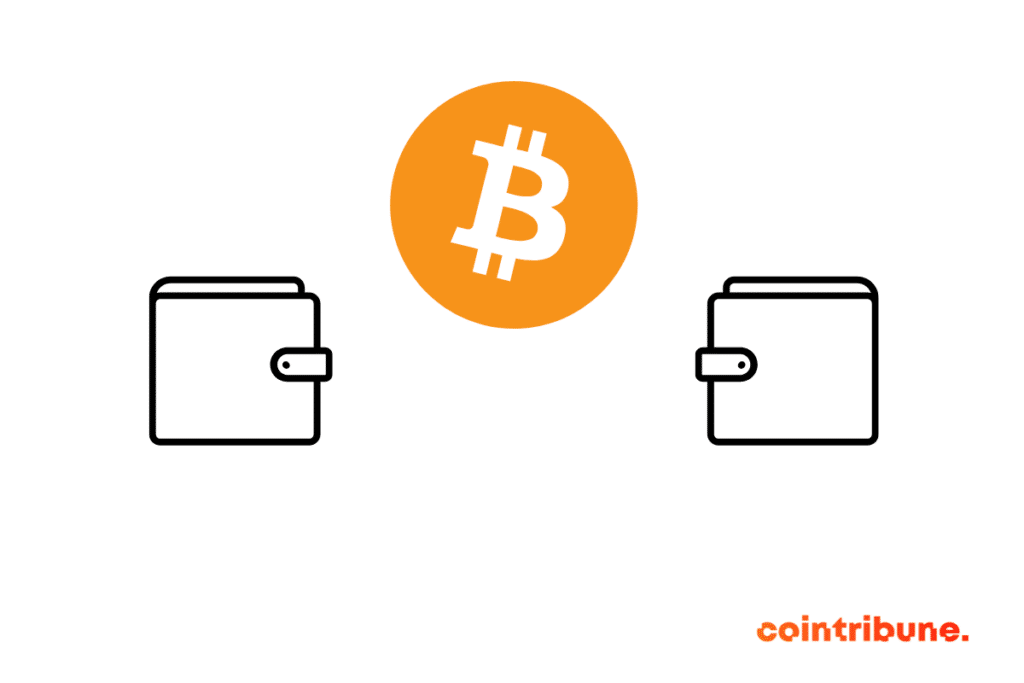Privacy and Bitcoin: All You Need to Know!
Bitcoin presents enormous financial potential and has a strong impact on the global economic system. Its strengths make it increasingly popular, attracting more attention from investors and even governments. Nevertheless, many enthusiasts of this digital asset have questions about its privacy. In this article, we reveal the different privacy elements related to the use of Bitcoin, whether you are a regular user or a curious investor. You will also receive some security tips from Bitcoin security to better navigate the cryptocurrency ecosystem.

How Privacy Works on the Bitcoin Network
The Bitcoin network offers a certain level of privacy thanks to the design of the blockchain and transaction mechanisms. However, it is important to understand the limits and advantages it offers.
Pseudonymity and Public Addresses
The Bitcoin network offers a certain level of pseudonymity or anonymity, as transactions are linked to public addresses, rather than directly to the identity of users. Each wallet generates unique addresses to receive and send bitcoins, which does not allow for direct linking of a transaction to a person.
However, if sufficient information is collected, it is possible to establish links between addresses and individuals. Moreover, once the real identity of the user of the address is found, it is entirely possible to trace all the transactions made by that individual. This is why the concept that best describes Bitcoin is more pseudonymity rather than pure anonymity.
Blockchain Technology and Transaction Traceability
The blockchain is a public and transparent ledger that contains the history of all transactions made on the network. This transparency allows for the verification of transaction validity and ensures network security. However, this can also pose privacy issues, as even if users’ identities are not tied to transactions, they can be traced.
Blockchain Explorers
Blockchain explorers allow for real-time analysis and tracking of transactions. They provide detailed information about transactions, such as the addresses of senders and recipients, the amounts transferred, and the transaction fees. It is therefore possible to follow the flow of bitcoins between addresses, which can potentially reveal information about users.
Limits of Traceability
The traceability of transactions has its limits, as it is difficult to establish direct links between addresses and users’ identities. However, advanced analysis techniques and data collection from external sources, such as cryptocurrency trading platforms, can help deduce information about users and their transactions.
Methods to Improve the Privacy of Your Bitcoin Transactions
There are several methods to enhance the privacy of your transactions and protect your privacy when using Bitcoin. Some of these methods are easy to implement, while others require the use of specific technologies or services.
Use Unique Addresses for Each Transaction
A recommended practice to strengthen the privacy of your transactions is to use a new address for each transaction. This complicates the establishment of links between your transactions and your identity.
Most modern wallets automatically generate new addresses for each transaction, making this practice easier. The goal is to isolate each transaction you make so that it becomes difficult, if not impossible, to link them to one another. People sending crypto to you will not be able to see your other addresses and what you do with them.
Mixing Bitcoins to Obscure Trails
Using the services of a cryptocurrency mixer is a technique that allows you to obscure links between addresses by mixing several transactions into one. This method can increase the privacy of your transactions, but it also comes with certain risks and downsides.
Cryptocurrency Mixers
Mixing services work by pooling bitcoins from different users and redistributing them randomly among them. This process obscures the links between addresses and makes tracking transactions more difficult. However, it is important to choose reputable mixers, as some may be fraudulent or keep logs of transactions.
Risks and Precautions
Mixing cryptocurrencies presents risks, such as loss of funds in case of fraud or service failure. It is also important to consider the legal implications, as some jurisdictions view cryptocurrency mixing as a suspicious activity. Make sure to comply with the laws in your country and choose reliable and secure mixers.
Resort to Integrated Privacy Solutions
There are also software solutions that offer enhanced privacy features for Bitcoin transactions. This is notably the case with Wasabi Wallet and Lightning Network.
Wasabi Wallet
Wasabi Wallet is a wallet that integrates the CoinJoin protocol, allowing you to mix transactions from multiple users to obscure links between addresses. CoinJoin is a decentralized and trustless protocol, making it safer and more resistant to censorship than centralized mixers.
Lightning Network
Lightning Network is a Bitcoin network scaling solution that enables fast and low-cost transactions off the main blockchain. By using private payment channels, it offers improved privacy compared to traditional transactions on the blockchain.

Other Privacy-Focused Cryptocurrencies
Although Bitcoin offers a certain level of privacy, some cryptocurrencies are specifically designed to protect users’ privacy. Here are a few:
Monero (XMR)
Monero is a privacy-focused cryptocurrency that uses the CryptoNote protocol to obscure information about transactions. Monero masks the addresses of senders and recipients, as well as the amounts of transactions, thus offering a high level of privacy.
Zcash (ZEC)
Zcash is another privacy-focused cryptocurrency that uses zero-knowledge proofs (zk-SNARKs) to mask information about transactions. Users can choose between transparent transactions and shielded transactions, which offer a balance between transparency and privacy.
Tips for Protecting Your Privacy in the Crypto Ecosystem
Protecting your privacy in the world of cryptocurrencies is essential for maintaining the confidentiality of your transactions and personal data. Here are some valuable tips that will undoubtedly help you achieve this goal.
Use a VPN and Privacy Protection Software
A VPN (virtual private network) can help mask your IP address and encrypt your Internet traffic, thus protecting your online privacy. Using privacy protection software, such as ad blockers and anti-tracking browser extensions, can also enhance your privacy.
Choose Reputable Platforms and Services
Make sure to choose exchange platforms, wallets, and cryptocurrency services that adhere to security and privacy standards. Look for reviews and testimonials from other users to assess the reputation and reliability of the services you use for this purpose.
Secure Your Accounts
Protect your devices and crypto accounts by using strong passwords, enabling two-factor authentication, and keeping your software up to date. Also, be careful not to disclose unnecessary personal information and stay vigilant against phishing attempts and scams.
Conclusion
Ultimately, privacy is a significant issue in the cryptocurrency ecosystem, and Bitcoin offers a certain level of privacy protection due to its decentralized and pseudonymous operation. However, it is essential to understand the limits of the privacy offered by Bitcoin. Its transparency also provides only limited protection against theft and scams that plague the sector.
It is therefore urgent to master the use of additional methods and tools, such as backing up your Bitcoin wallet, to enhance the protection of your privacy. Moreover, it is also crucial to understand that absolute anonymity of Bitcoin is not automatically guaranteed. Awareness of these elements will allow you to explore practices that enhance your security and privacy when using cryptocurrencies.
Maximize your Cointribune experience with our "Read to Earn" program! For every article you read, earn points and access exclusive rewards. Sign up now and start earning benefits.
The Cointribune editorial team unites its voices to address topics related to cryptocurrencies, investment, the metaverse, and NFTs, while striving to answer your questions as best as possible.
The views, thoughts, and opinions expressed in this article belong solely to the author, and should not be taken as investment advice. Do your own research before taking any investment decisions.